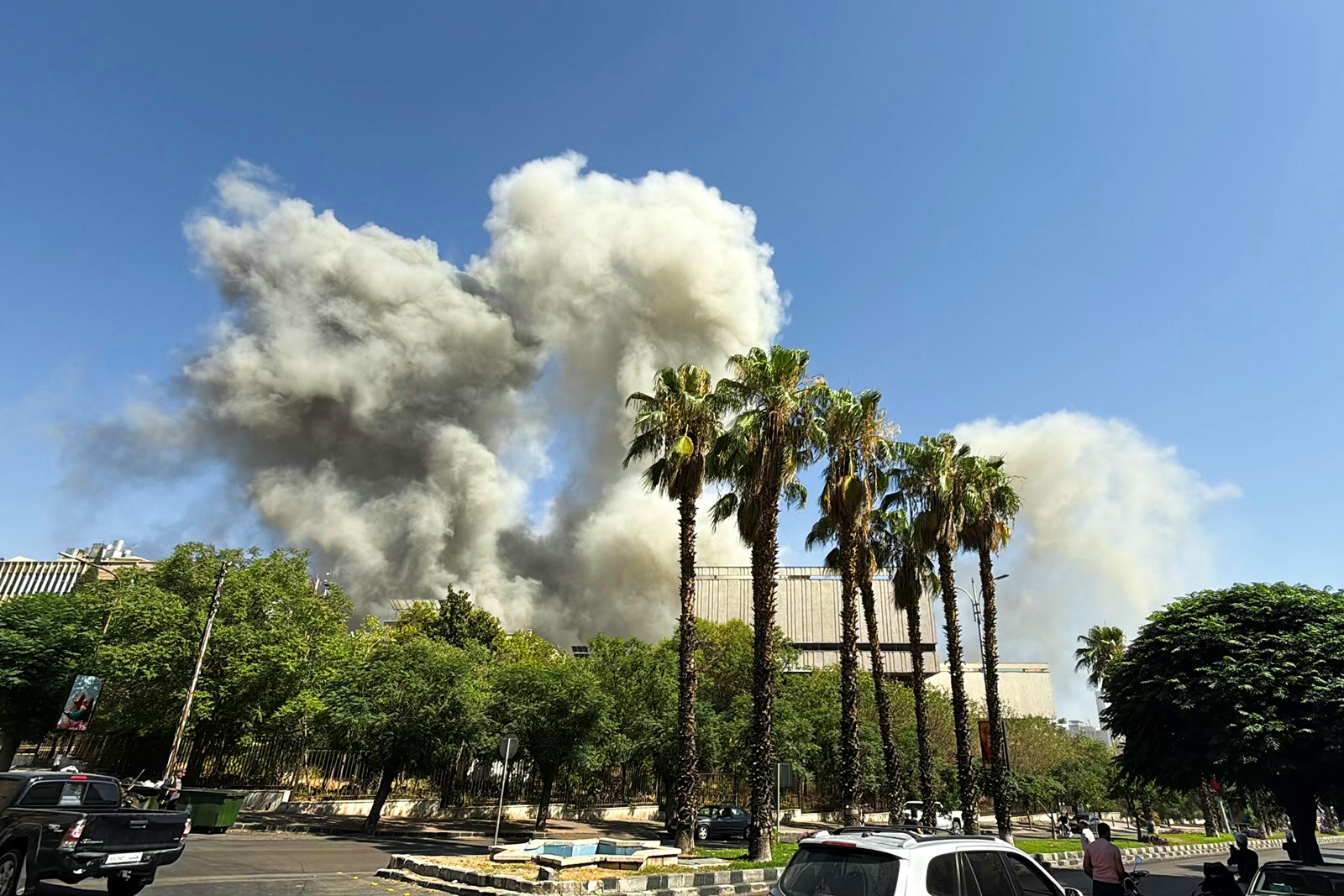
BEIRUT — Israel launched deadly airstrikes on Syria’s capital Wednesday, damaging a compound housing the Defense Ministry and hitting an area near the presidential palace, according to the Israeli military and Syrian authorities.
The bombardment in central Damascus, the capital, followed days of bloody clashes involving Syrian government forces in the southern region of Sweida, the heartland of the country’s Druze minority.
The Israeli government, which has pledged to protect that minority, warned Wednesday that it would intensify strikes if Syrian government forces did not withdraw from the region, a strategically important province near Israel and Jordan. Israeli officials have said previously that they want to prevent any hostile forces in Syria from entrenching near their borders.
The escalating tensions between Israel and the Syrian government threaten to derail their tentative steps toward warmer ties after decades of hostility. Syria’s new president, Ahmad al-Sharaa — a former Islamist rebel leader — has tried to stabilize the country since overthrowing dictator Bashar Assad in December. He has also forged closer relations with the United States.
Assad was a loyal ally of Iran and a sworn enemy of Israel. But the rebels who ousted him have opened contacts with Israel in recent months, mediated by the United States, in a bid to lower cross-border tensions.
Shortly after the Israeli airstrikes on Damascus, Syrian authorities announced that a new ceasefire had been reached in Sweida with local leaders. Later, Secretary of State Marco Rubio said on social media that the United States had worked with all parties involved in the clashes and had “agreed on specific steps that will bring this troubling and horrifying situation to an end tonight.”
However, the flurry of diplomatic activity appeared to do little to halt Israeli strikes. As night approached, additional Israeli attacks on military targets around Damascus were reported, according to the Syrian Observatory for Human Rights, a war monitor based in Britain.
There was no immediate confirmation from Israel.
The clashes in recent days marked Sweida’s deadliest spell of unrest in recent memory. More than 300 people have been killed in four days, according to the observatory.
Electricity and internet outages are widespread. Hospitals are facing shortages in medical supplies. Many civilians are unable to flee and sheltering at home.
The fighting in Sweida erupted Sunday after armed members of a Bedouin tribe attacked and robbed a Druze man along a main highway, the observatory said. As the unrest escalated, al-Sharaa’s government deployed its military forces to the province Monday to quell the conflict, Syrian officials said.


 PREVIOUS ARTICLE
PREVIOUS ARTICLE
